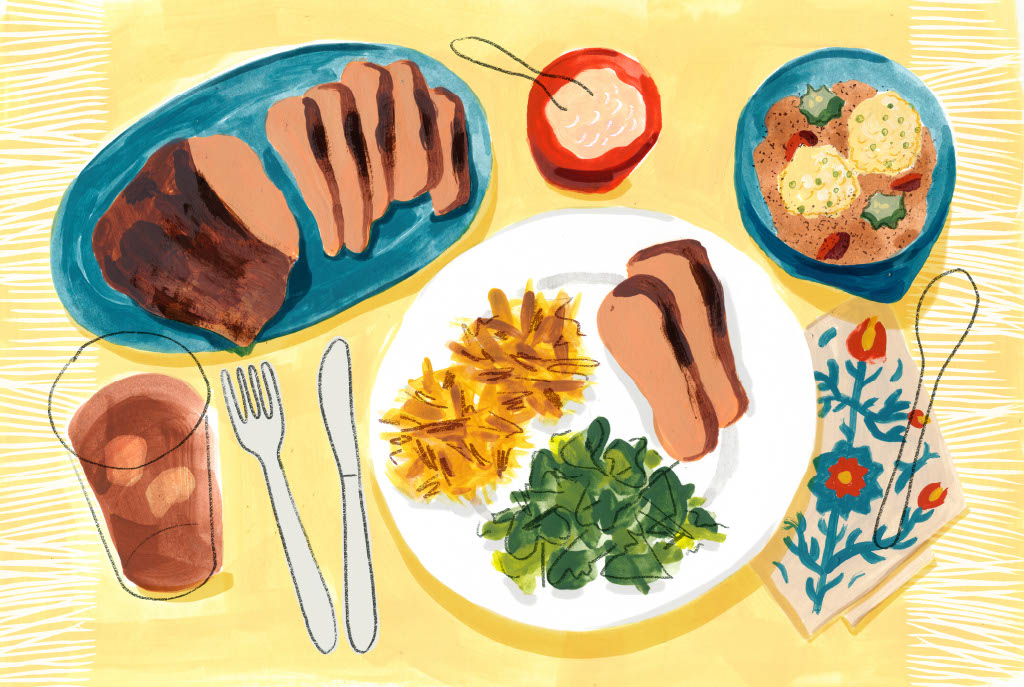What’s on the plate?
Brisket, collard greens, matzo ball gumbo, potato latkes, and grits
“When we study food in the south, we unveil a web of social relations defined by race, class, ethnicity, gender, and shifting economic forces” — Marcie Cohen Ferris, Edible South
The earliest Jewish immigrants to Vicksburg and Natchez, where the first congregations were formed in Mississippi, traveled up the Mississippi River from New Orleans in the early 1800s. They felt a connection to a region shaped by a significant river, reminding them of the Rhine River they had known in southern Germany and Alsace.
In the contemporary South, Southern and Jewish foodways have been a powerful expressive language of regional and religious identity, from synagogues and Jewish community organizations, social clubs, and summer camps.
Mississippi Jewish dishes were strongly influenced by regional ingredients and dishes—sweet potatoes, peaches, pecans, Coca-Cola, grits, rice, fried chicken, field peas, okra, butter beans, molasses, as well as spicy flavors and cooking methods from barbecuing, smoking to frying.
“Across the South, a new generation of Jewish chefs, restaurateurs, farmers, artisanal makers, food activists, and consumers value the region’s Jewish history and food traditions, but also support a thriving Jewish food movement that emphasizes local and seasonal food, environmental sustainability, food equity, social justice, and food studies.” — Marcie Cohen Ferris
Read more about Jewish culinary traditions:

Southern Jewish Foodways
Marcie Cohen Ferris and Lesley Silver will lead a discussion on the Southern Jewish culinary experience.

